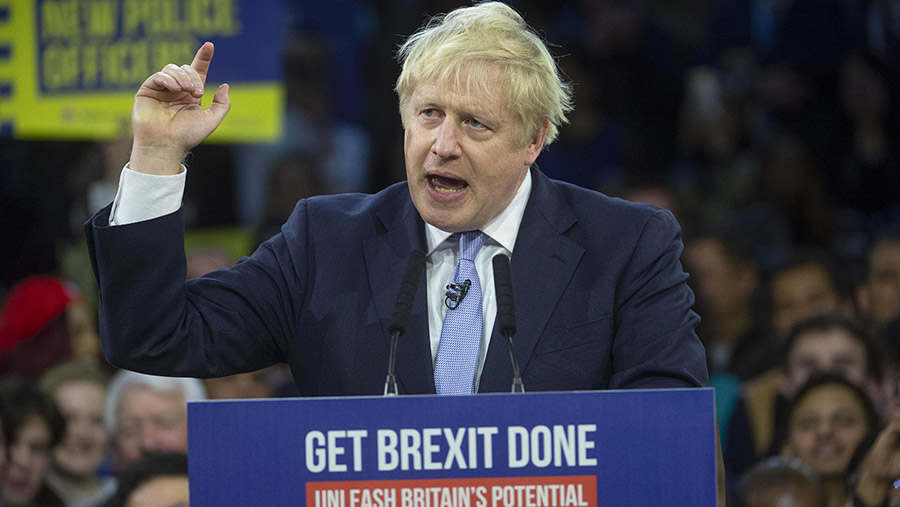FW Opinion: Farming depends on long-term trade deal with EU
 © Julian Simmonds/Shutterstock
© Julian Simmonds/Shutterstock So, Brexit will finally “get done”. That is the firm conclusion of last week’s general election, which saw Boris Johnson returned to power with a parliamentary majority that few were predicting.
With all the political clout he needs, he will now have no difficulty passing his EU withdrawal agreement by 31 January and will then move on to negotiating a more permanent trading arrangement with Brussels.
The developments have met with a mixed reaction.
See also: Farmers react to Conservative landslide election win
About the author
 Phil Clarke
Phil Clarke
Executive editor, Farmers Weekly
Contact:
E: philip.clarke@reedbusiness.com
T: @FWphilclarke
Read more articles by Philip Clarke
A mixed reaction
For those farmers who voted to leave the European Union three-and-a-half years ago and who have been enormously frustrated that parliament then failed to deliver, there is a deep sense of satisfaction.
Other farmers with a more “remain” orientation will doubtless be dismayed that their hopes of securing at least a confirmatory referendum, if not the abandonment of the whole Brexit project, have now been permanently dashed.
The consequences of “no deal” with the EU would be punitive tariffs on food exports, inadequate protection from cheap food imports and increased pressure on the government to secure a lopsided trade deal with the US
But there are also plenty of “remainers” who, although disappointed, now accept that the most pro-leave party has dominated the election and the time has come to move on.
Anyone who thinks this means that Brexit uncertainty is now over, however, should think again.
As many have pointed out, the withdrawal agreement just sets the scene and the real work of establishing a long-term trading relationship with the EU, and with others, is just getting started.
No deal territory
To focus minds, Mr Johnson insisted this week that there will be no extension to the transition period, during which negotiations will take place, beyond 31 December 2020.
This sounds like a political straightjacket. But it’s easy to understand his approach. The prime minister has already shown that, when dealing with Brussels, the threat of a meaningful deadline can get results.
But the prospects of completing in 12 months what normally takes seven years, and without any flexibility in the timetable, is hugely optimistic and puts the country back into “no-deal” territory. That is a dangerous place to be.
The consequences of “no deal” with the EU would be punitive tariffs on food exports, inadequate protection from cheap food imports and increased pressure on the government to secure a lopsided trade deal with the US.
Of course, it’s not all about trade, and there are many other things the new government must now press on with.
The Conservative manifesto was full of promises for farming, including a five-year funding commitment, the provision of broadband to those hard-to-reach places, improved policing, better public procurement, sufficient access to labour – to name but a few.
These are all hugely important and the government must deliver on its promises.
But the top priority remains to secure a long-term trade deal with the EU that provides British agriculture with the best possible access to its nearest and richest neighbours. That is what food and farming depend on the most.
